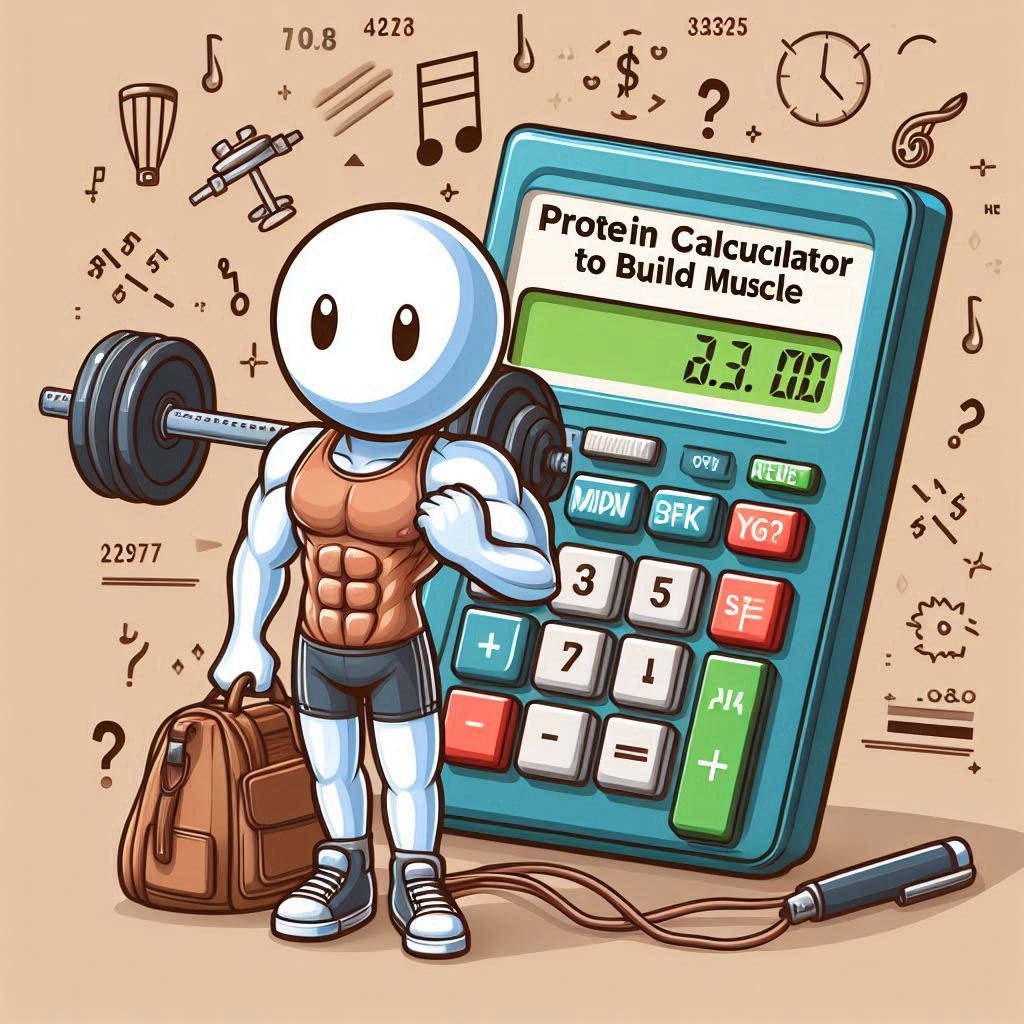Struggling to Build Muscle? Use This Protein Calculator to Build Muscle Like a Pro!
Introduction
Lifting weights is only one aspect of developing muscle. A significant factor is also your diet. Gaining lean muscle mass requires consuming the correct amount of protein. But how can you determine your required intake of protein? The solution is a protein calculator. This tutorial will teach you how to use a protein calculator to meet your muscle-building objectives and TDEEcalculator from you'll also get simple advice on how to maximize your protein consumption according to your weight.

Protien calculator: An ultimate guide to build muscle
Why Protein Is Important for Muscle Growth
Since it contains the necessary amino acids, protein is needed for the formation of muscles. These are the components of muscular tissue. Amino acids are produced by your body from the protein you ingest. Muscle fibers can be rebuilt and repaired with the aid of these amino acids. Particularly after exercise, this procedure is crucial. This procedure is essential for the healing of muscles. After exercise, it promotes muscle growth and healing. Because of this, consuming adequate protein is essential for increasing muscle growth. Studies reveal that consuming more protein can enhance one's power. Even greater outcomes are seen when combined with resistance training.
What Protein Does for Your Muscles
Tiny tears are created in your muscle fibers during exercise. Your muscles get stronger and those tears are repaired with the help of protein. We refer to this process as muscle protein synthesis. That's how your muscles develop over time, getting bigger and stronger. Muscle growth is aided by increasing protein intake. It also hastens the healing process following exercise.
How a Protein Calculator Helps Build Muscle
A useful tool for anyone trying to gain muscle is a protein calculator. You may calculate your daily protein requirements with the help of a protein calculator. It takes things like height, weight, and age into account. It provides a personalized advice based on your fitness objectives and activity level. This tailored strategy assists you in consuming the appropriate amount of protein. It helps to build and repair muscles. Whether you're an experienced athlete or a novice, this is vital.
How Much Protein Do You Need to Gain Muscle?
You may require different amounts of protein to build muscle. Your weight, age, and degree of activity are some of the variables that affect it. How much protein you require depends mostly on your fitness objectives. Eat 1.2–2.2 grams of protein per kilogram of body weight each day, according to recommendations. Sufficient muscular growth is supported by this range. Your body's needs and fitness objectives will determine how much to adjust. To build muscle, you must consume protein consistently throughout the day. Eat a variety of meals and snacks to get enough protein. This strategy maximizes recuperation and muscle growth.
How to Calculate Protein Based on Body Weight
Using your body weight is the easiest way to determine your protein needs. Here’s a simple guide:
• For moderate muscle gain: 1.6 grams of protein per kg of body weight
• For faster muscle gain: 2.2 grams of protein per kg of body weight
So, if you weigh 80 kg (about 176 lbs), you’d need between 128g to 176g of protein daily.
How to Use a Protein Calculator: Easy Steps
Using a protein calculator is simple:
1. Enter Your Info: Add your weight, age, and activity level.
2. Set Your Goal: Choose what you want to gain muscle, lose fat, or maintain your weight.
3. Get Your Result: The calculator gives you a daily protein target based on your goal.
Avoid These Mistakes When Using a Protein Calculator
Some common mistakes can mess up your results:
• Guessing Your Activity Level: Be honest about how active you really are.
• Ignoring Protein Quality: High-quality protein is better for muscle growth.
• Inconsistency: Even with a target, you need to stick to it every day.
Choosing Quality Protein Sources
Proteins differ from one another. Certain ones work better for building muscle. Top sources of protein are as follows:
• Chicken breast
• Fish like salmon and tuna
• Eggs
• Greek yogurt
• Lentils and beans
These foods are rich in the essential amino acids your muscles need.
Top Foods to Reach Your Protein Goals
The following foods are high in protein and simple to incorporate into your diet:
• Protein content of chicken breast: 31g per 100g
• Each 100g of cottage cheese has 11g of protein.
• Legumes: 100g has 9g of protein.
• 25g of protein per 100g of tuna
• Greek yogurt: 100g contains 10g of protein.
These choices are rich in nutrients and heavy in protein.
Should You Use Protein Supplements?
If you have trouble meeting your daily goal, protein supplements may be helpful. Protein powders made from plants and whey are popular options. Remember, though, that the best source of protein for you should be whole foods. If diet isn't enough to satisfy your daily protein needs, protein supplements may be able to help. They can be used with ease and convenience. If getting enough protein from meals is a challenge for you, think about them. Particularly when you're pressed for time or constantly on the go, they offer a practical approach to up your intake. Instead of using supplements as a substitute for a balanced diet, it's preferable to use whole foods as your primary source of protein.
Conclusion: Boost Your Muscle Gains with a Protein Calculator
Lifting weights is not the only thing that builds muscle. The secret is to eat the correct foods, particularly enough protein. You can determine your exact protein requirements by using a protein calculator. You'll experience greater benefits in the gym when you follow a healthy diet. Thus, begin using a protein calculator right now and see how your muscles develop!